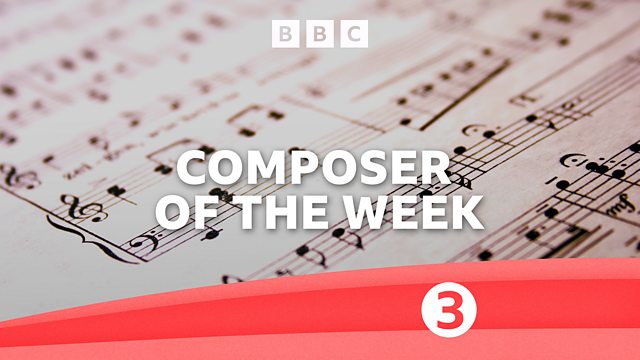
An Indian Summer
Donald Macleod delves into Holst’s final years when she composed her significant String Quintet.
Donald Macleod delves into Holst’s final years when she composed her significant String Quintet.
Imogen Holst was a significant part of the British classical music scene during the twentieth century. Holst was prominent as a composer, conductor, writer on music, teacher, administrator and artistic director. She also worked as an amanuensis to Benjamin Britten. As the daughter of Gustav Holst, Imogen was raised in an artistic environment, and her early aspirations were to be a dancer. She studied at the Royal College of Music where she won a number of prizes and awards, and developed a passion for British folksong. During World War Two, Holst travelled the UK to support cultural activities, and she established the famous music education centre at Dartington Hall in Devon. There followed an invitation to Aldeburgh where she would support Benjamin Britten for many years in his compositional activities. Holst later became an Artistic Director for the Aldeburgh Festival. She wrote many books, including studies of Britten and her father. In later in life, she was active in cataloguing her father’s compositions and preparing them for publication. Throughout this exceptionally busy career, including establishing the Purcell Singers and giving radio interviews, Imogen Holst continued to compose and wrote many works from choral pieces and folksong arrangements, to concertos and string quartets. Her considerable output as a composer is only just beginning to be appreciated, and throughout this series we also hear archive recordings of Holst in interview.
During Imogen Holst’s final decades, she stepped back from her work with Benjamin Britten, although she remained very much involved with the Aldeburgh Festival and continued to live there. Her relationship with Britten had become intense and stifling, and Holst began to return her attention to her own music, and also to the music of her father. In these final years, Holst composed a number of significant works including her String Quintet. However, many years of working flat out started to catch up with her and Holst's health started to deteriorate. In 1984 Imogen Holst died of a heart attack, and was buried in Aldeburgh in a plot next to Britten.
Christopher Grogan’s biography Imogen Holst: A Life in Music, has been a great help in the making of this series.
Timothy’s Trot (Four Easy Pieces)
Yue Yu, viola
Anthony Hewitt, piano
What Man is He?
�鶹������ҳ��� Singers
�鶹������ҳ��� Concert Orchestra
Alice Farnham, conductor
Leiston Suite
Onyx Brass
John Wilson, conductor
Hallo my fancy, whither wilt thou go?
Choir of Clare College, Cambridge
Graham Ross, director
String Quintet
Simon Hewitt Jones, violin
David Worswick, violin
Ton Hankey, viola
Oliver Coates, cello
Thomas Hewitt Jones, cello
Mass in A minor (excerpt)
Choir of Clare College, Cambridge
Graham Ross, director
Produced by Luke Whitlock
Last on
More episodes
Next
You are at the last episode
Music Played
-
![]()
Imogen Holst
4 Easy Pieces (No 1, Timothy's Trot)
Performer: Yue Yu. Performer: Anthony Hewitt.- NAXOS : 8.574150.
- NAXOS.
- 3.
-
![]()
Imogen Holst
What Man is He?
Choir: �鶹������ҳ��� Singers. Orchestra: �鶹������ҳ��� Concert Orchestra. Conductor: Alice Farnham.- NMC : CD-280.
- NMC.
- 8.
-
![]()
Imogen Holst
Leiston Suite
Ensemble: Onyx Brass. Conductor: John Wilson.- CHANDOS : CHSA5221.
- Chandos.
- 34.
-
![]()
Imogen Holst
Hallo my fancy, whither wilt thou go?
Choir: Choir of Clare College, Cambridge. Director: Graham Ross.- HARMONIA MUNDI : HMU907596.
- HARMONIA MUNDI.
- 16.
-
![]()
Imogen Holst
String Quintet
Performer: Simon Hewitt Jones. Performer: David Worswick. Performer: Tom Hankey. Performer: Thomas Hewitt Jones.- NMC : CD-236.
- NMC.
- 17.
-
![]()
Imogen Holst
Mass in A minor (Credo; Sanctus; Agnus Dei)
Choir: Clare College Cambridge Choir. Conductor: Graham Ross.- HARMONIA MUNDI : HMU-907576.
- HARMONIA MUNDI.
- 3.
Broadcast
- Fri 24 Jan 2025 16:00�鶹������ҳ��� Radio 3
Beethoven Unleashed – the box set
What was really wrong with Beethoven?
Composers A to Z
Who knew? Five eye-opening stories from Composer of the Week
Five reasons why we love Parry's Jerusalem
What is the strange power of Jerusalem which makes strong men weep?
A man out of time – why Parry's music and ideas were at odds with his image...
The composer of Jerusalem was very far from the conservative figure his image suggests.
Composer Help Page
Find resources and contacts for composers from within the classical music industry.





